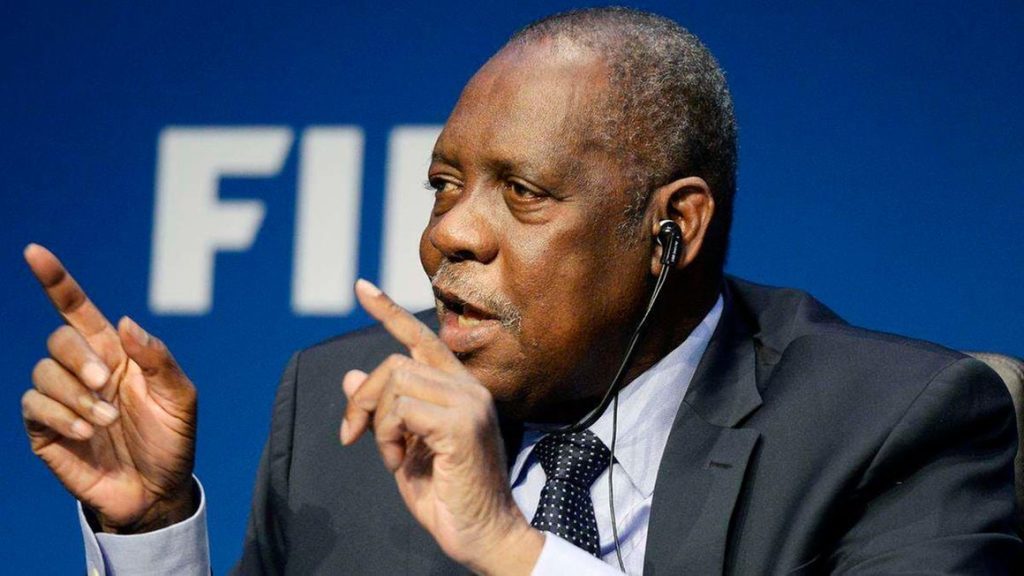Issa Hayatou, the former president of the Confederation of African Football (CAF), passed away on Thursday at the age of 77, just one day shy of his 78th birthday. His remarkable 29-year tenure at CAF, which lasted from 1988 until his ousting in 2017, marked a significant era in African football.
In addition to leading CAF, Hayatou briefly served as the acting FIFA president from 2015 to 2016, following Sepp Blatter’s suspension, and held the role of senior vice president at FIFA for 25 years. He was also a member of the International Olympic Committee from 2001 until 2016, after which he became an honorary member.
Hayatou’s journey in sports began as a sprinter, where he set national records for Cameroon in the 400 meters and 800 meters. His early career as a physical education teacher laid a foundation for his eventual transition to sports administration, where he became a prominent figure.
His passing was announced by Cameroon’s state radio, revealing that he had been in Paris, observing the ongoing events at the 2024 Olympic Games while battling a long-term illness. Reports indicated he had been frail and frequently hospitalized in recent months.
Hayatou’s legacy in football administration began in 1985 when he joined Cameroon’s football federation, initially as Secretary General and later as president. He was elected CAF president in 1988, succeeding Ethiopia’s Ydnekatchew Tessema. Over the years, he faced criticism for allegations of corruption and mismanagement, yet many credit him with expanding the Africa Cup of Nations (AFCON) from 16 to 24 teams, allowing for greater representation from nations that were historically underrepresented.
Born on August 9, 1946, into an influential family in Garoua, Cameroon, Hayatou began his career in sports education before ascending the ranks of football governance. He held various positions within the Cameroon Football Federation and CAF, earning respect and notoriety in equal measure.
During his time as CAF president, Hayatou oversaw the expansion of AFCON and the introduction of several continental competitions, including women’s age-group tournaments and the African Nations Championship (CHAN). His tenure also saw Africa gain more representation at the FIFA World Cup, with slots increasing from two to five.
A notable event during his leadership was his successful negotiation for Equatorial Guinea to host the 2015 AFCON after Morocco withdrew due to concerns over the Ebola outbreak. This showcased his influence in African football but also marked a turning point in his long-held position.
In 2017, Hayatou lost his bid for an eighth term to Ahmad Ahmad of Madagascar, a defeat many attributed to shifting dynamics within CAF and FIFA. Following his departure, he continued to contribute to football in Cameroon, even as he faced a one-year ban from FIFA due to ethics violations connected to a controversial marketing deal. This ban was eventually lifted by the Court of Arbitration for Sport in 2022.
Outside of football, Hayatou’s family maintained a powerful political legacy in Cameroon. His brother, Sadou Hayatou, served as prime minister, and speculation arose regarding Issa’s potential appointment to a government position after his brother’s death in 2021.
As the football community mourns his passing, Hayatou’s complex legacy—a mix of significant achievements and controversies—will undoubtedly remain a topic of discussion for years to come. His contributions to African football, particularly in expanding its global footprint, are a testament to his enduring influence in the sport.





















